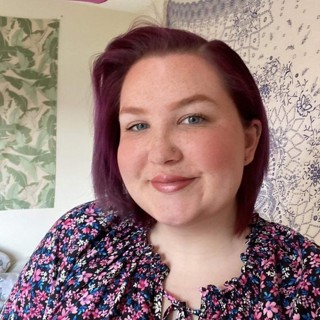Zoe's Story
Zoe's Story

I think if you were to ask the general population how they view people with severe and enduring mental illnesses, they will probably respond saying that we're deserving of help, we should be treated with compassion.
But I think the reality of what people think and how they behave is completely different, and that shows in the way that people with severe and enduring mental illnesses are treated.
I had a really close-knit group of friends who I had gone to high school with. When I first told them about my mental health, and I was seeing a therapist, they were really, really understanding and supportive, and really there for me.
But then, as my mental health got worse and I required psychiatric hospital admissions, slowly, the understanding and support seemed to drop away.
During the first couple of admissions, my friends would visit me weekly, they would text me every day – we were in contact a lot of the time. But by my third, third, fourth admission, slowly they stopped visiting. As time went on, they weren't messaging any more. I remember feeling really confused. I felt like, what have I done wrong here? These people had been one of my biggest support networks, and suddenly they were no longer there.
I'm aware that at that time, I was quite a difficult person to be around. I think part of the reason that they distance themselves from me was because they didn't really truly understand what I was going through – I looked fine.
That's the thing with mental illness – to look at somebody, they might look okay, but you can't see the sort of emotional pain that they're in.
Last year, I was in a psychiatric hospital for around 15 months. During that time, I went through various different diagnoses, but around 10 months into my stay, I was diagnosed with EUPD (emotionally unstable personality disorder). I definitely noticed a massive shift in attitudes and the way I was treated after that diagnosis.
I think there's a lot of discrimination surrounding EUPD, even within mental health services. I noticed a general lack of compassion. I felt like, whenever I did anything, or said anything – like if I dyed my hair, or wasn't friends with somebody anymore – it was put down to the fact that I had EUPD. Everything that I did and said was listed off as a symptom of EUPD. I felt like I was no longer seen as a person; I was seen as a list of symptoms and a diagnosis.
There was one incident where I had harmed myself. The nurses found out and didn't treat the injury appropriately. They didn’t call a doctor. Because I'd been diagnosed with the EUPD, I feel like when I harm myself, it’s seen as attention seeking and not treated appropriately – it’s almost dismissed.
It all made me feel very alone, very hopeless.
I felt like if I couldn't get appropriate care in that situation, how was I ever going to recover? How was I going to get appropriate care within the community? How was I going to move forward with my recovery journey? Without appropriate support, I felt like it was all on me, I had to get better on my own, and that they weren't going to offer any sort of support.
I think the Stigma Study is important because having those statistics out in the open will hopefully bring a level of awareness to the fact that there is a lot of stigma and discrimination for people with severe and enduring mental illness, and hopefully highlight how much needs to change and why that needs to change. I think it's a really important piece of work.
